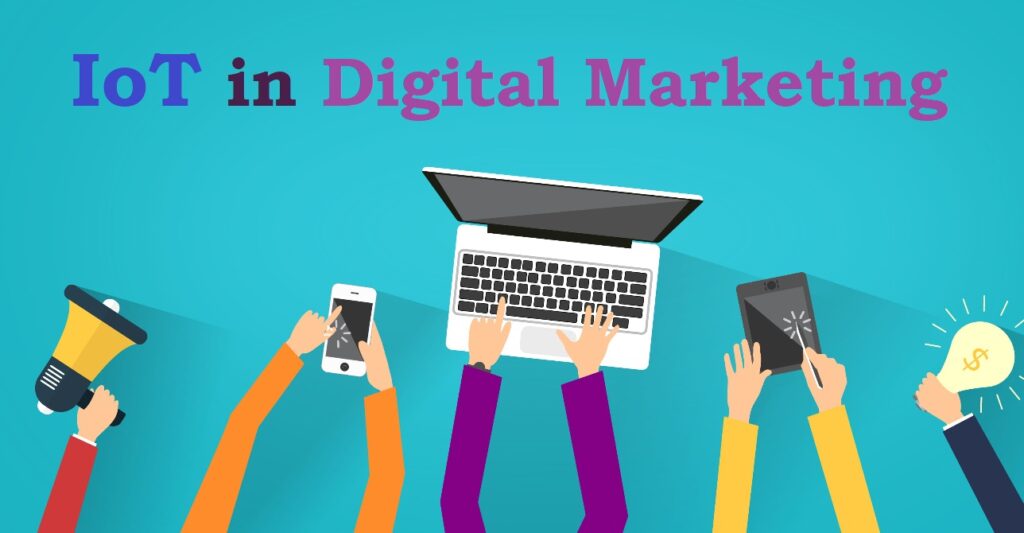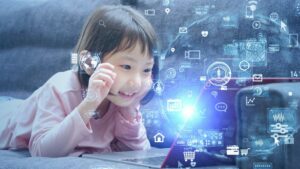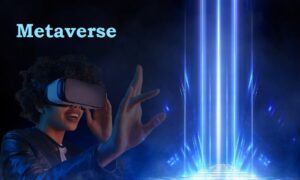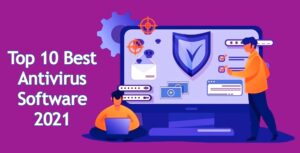How is the Internet of Things Used in Digital Marketing?
IoT technology works to define things with each other, operate them, and control them automatically without human intervention, with the aim of improving human life and saving their time and effort. But how the Internet of Things (IOT) is changing e-commerce and online businesses? This is what we will discuss in today’s article, so let us begin our journey.

What is the Internet of Things?
The Internet of Things (IoT) is one of the fastest growing technology sectors in the world. Views and opinions have multiplied in reaching a clear and specific definition of this modern term. However, all definitions flow into one concept that is intended to configure all the devices and tools surrounding us to become connected to the Internet or to each other to send and receive data to perform specific functions through the network without the need for human intervention.
So The Internet of Things is a system of interconnected mechanical and digital machines, computing devices, objects, etc. It can transmit information over the network without human-to-computer interaction or human-to-human interaction.
Applications of Internet of Things
There is a whole range of IoT applications, some of the most popular of which are:
Wearable Devices
Wearable devices are perhaps the most visible aspect of the Internet of Things for the everyday user, and include fitness trackers, smart watches, smart glasses, virtual reality headsets, etc.
Smart Homes
A smart home system communicates with devices to automate specific tasks and is usually controlled remotely. IoT devices in smart homes may include, for example, wireless kitchen appliances, mood-sensing music systems, smart lighting, motorised blinds, motorised windows and doors, and smart utility metres.
Self-driving cars
Self-driving cars usually have an IoT-based technology system that shares information about the car itself as well as the road it’s on. Data about traffic, navigation, the external environment, and more is collected and analysed by the car’s computer systems to enable it to drive itself.
Smart Farming
Smart farming involves the use of digital technology to improve farming efforts. For example, farmers may use sensors, cameras, and other connected devices to improve general visibility of their arms and adjust processes to improve their production.
Smart Cities
Smart cities use IoT devices such as sensors and connected metres to collect and analyse data, and this data can be used to improve infrastructure, public facilities, and services.
Telehealth
Telehealth, sometimes called telemedicine, refers to the delivery of health services through technology. The Internet of Things is an aspect of healthcare such as telemedicine diagnostics, digital communications for medical imaging, and video consultations with specialists.
Retail Industry
IoT is increasingly being used in retail such as automated checkouts, personalised discounts, smart shelves that alert the retailer when inventory is running out, automated staffing, and improved supply chain management. Amazon’s innovative store is an example of the Internet of Things, where funds are deducted from customers’ Amazon wallets, and goods are added to customers’ carts in real time as products are selected from the shelves.
This list, for example, is not limited to the areas of benefiting from the Internet of Things, which are very numerous and cannot be limited to in this small article.
Who Controls the Internet of Things?
The Internet of Things is a new concept for our lifestyle and our business management using the Internet, and it is not confined or monopolised to a specific company. However, taking into account the current data, the four companies that are most likely to have a significant role in this market are:
Cisco: It is one of the first companies to invest in providing solutions to the business sector in the field of Internet of Things and has very important studies in this field.
Microsoft: which launched a special version of the operating system for Internet of Things. Thus, Microsoft has what qualifies it to lead the software sector in the IoT market.
Google: With its rich experience in the consumer sector in the field of big data, it also has the tools necessary to manufacture smart solutions.
Intel Corporation: It specialises in the field of processor manufacturing, and has directed large sums of its budget to invest in research and huge projects in the field of the Internet.
The Role of the Internet of Things in Digital Marketing
The Internet of Things is greatly affecting the world of marketing, and this technology helps companies to make their services and products more attractive to consumers by listening to customers’ needs and responding to them accordingly.
Digital marketers can understand what customers actually expect from their brands, which helps in improving the quality of their products.
Forecasting demand and planning for new products: Accessing data from IoT devices will help companies make better and faster decisions.
Analyzing a customer’s buying behavior helps to understand customers’ buying behavior from start to finish, and gives a clear view of where the customer is in the buying journey.
Analyzing consumer needs, buying pattern and trends affecting consumer buying pattern and location allowing marketers to customize products accordingly.
Smart devices allow marketers to collect a lot of data about consumers that will be used in effective marketing campaigns.
IoT devices can provide much more data through sensors about consumers than traditional research.
Big data provides more accurate insights that help marketers reduce risk and increase opportunity.
With the help of smart devices, you can read consumer insights. Smart devices also provide a huge amount of data that will provide deeper and fundamental insights about customers.
Data from smart devices used to understand the daily lifestyle of customers allows digital marketers to promote products based on the data collected.
Tracking data from IoT devices helps marketers predict when a customer will need a particular product or service. Real-time customer insights help marketers increase sales.
Personalization is an effective way to reach and engage your audience. IOT helps marketers communicate with their customers in real time, target audiences more accurately and improve marketing campaign effectiveness.
Marketers usually spend a lot of time and effort to collect customer data. But the Internet of Things helps marketers save time collecting and analyzing data.





